Lionsgate Films is an American film production and distribution studio and a division of Lions Gate Entertainment. The studio, originating from Cinépix Film Properties on January 12, 1998, distributed every installment in the Saw series.
History[]
Cinépix[]
Cinépix was founded in 1962 by John Dunning and Andre Link and was based in Montreal. It was a leading Canadian independent motion picture company that released English- and French-language films and distributed up to 12 films annually with a modest budget. Initially starting as a distribution company, Cinépix's first production was the 1969 erotic drama Valérie, garnering $1 million in Quebec. The company also distributed art-house films like the grunge-rock documentary Hype, Vincent Gallo's Buffalo '66, and SICK: The Life & Death of Bob Flanagan, Supermasochist.
From 1989 to 1994, Cinépix partnered with Famous Players in C/FP Distribution. The latter was renamed Cinépix Film Properties after Cinépix had bought out its stake in the organization. By 1997, Cinépix had a New York-based US distribution arm and owned 56% of Ciné-Groupe, an animated film production company.
Lions Gate Entertainment[]
On July 10, 1997, the Lions Gate Entertainment Corporation was founded by Frank Giustra and Avi Federgreen in Vancouver, British Columbia. The company purchased Cinépix, renamed Lionsgate Films, on January 12, 1998, while keeping its old leadership. The LGEC also purchased the Vancouver-based North Shore Studios, which became Lions Gate Studios. In June 1998, the corporation purchased the International Movie Group, whose film library included Jean-Claude Van Damme's Kickboxer.
Lionsgate Film's first major box office success was American Psycho in 2000, which led to the production and distribution of films too controversial for the major American studios, such as Lolita. Other notable films included Affliction, Gods and Monsters, Dogma, Cube 2: Hypercube, Saw, and the documentary Fahrenheit 9/11 by Michael Moore.
When Frank Giustra left the company in 2000, it was subsequently taken over by Tom Ortenberg and former Sony Pictures executive Jon Feltheimer. They decided to focus on the profits of videos and DVDs and began to purchase struggling firms that controlled large libraries. The two most notable acquisitions were Trimark Holdings in 2000 and Artisan Entertainment in 2003. Together with other firms, these two gave Lions Gate Entertainment the second-largest DVD library of any company, including Total Recall, Reservoir Dogs, On Golden Pond, Young Guns, Dirty Dancing, and It's a Wonderful Life. The Trimark purchase also included CinemaNow, a broadband streaming website where Lionsgate could feature its movies.
Lionsgate Films occasionally co-produces movies with major studios. For example, the company partnered with Miramax Films for the 2004 sequel Dirty Dancing: Havana Nights and Paramount Pictures for Narc in 2002 and The Prince & Me in 2004. Lionsgate was also a silent partner in 20th Century Fox's sci-fi film The Day After Tomorrow in 2004. In the same year, Lionsgate joined forces with its independent rival, United Artists, in producing Hotel Rwanda.
On August 1, 2005, the Lions Gate Entertainment Corporation acquired the entire library of Modern Entertainment. On October 17, 2005, Lionsgate acquired Redbus Film Distribution for $35 million, renaming it Lionsgate UK on February 23, 2006. Zygi Kamasa, a co-founder of Redbus, became CEO of Lionsgate UK and Europe.
On March 23, 2012, Lionsgate's film The Hunger Games grossed $68.3 million when it premiered at the US box office. It was the most profitable opening day for a non-sequel and the fifth-highest in Lionsgate's history. The Hunger Games grossed $152.5 million on its first weekend, making it Lionsgate's highest-grossing film after three days.
On January 13, 2012, the Lions Gate Entertainment Corporation acquired Summit Entertainment, the studio behind the Twilight and Step Up franchises, for $412.5 million. On May 3, 2012, Lionsgate Films agreed with CodeBlack Enterprises' CEO, Jeff Clanagan, to create CodeBlack Films, based at Lionsgate.
On January 16, 2013, Lionsgate announced a low-budget film division led by John Sacchi. The division was designated to release films with a budget of less than $2.5 million. Sacchi had recently shown interest in acquiring such films, including Rock Bottom Creek from 2012 and other independently made films. On November 22, 2013, Lionsgate released The Hunger Games: Catching Fire. The movie quickly surpassed its predecessor, grossing $158 million at the US box office on its opening weekend. It had a budget of $130 million and was highly praised by critics, receiving a rating of 89% from Rotten Tomatoes. The third film in the Hunger Games franchise, Mockingjay- Part 1, was released in 2014. The final installment, Mockingjay - Part 2, was released in 2015.
On April 1, 2015, Lionsgate announced the creation of its new label, Lionsgate Premiere. This new label was planned to handle up to 15 movie releases a year, targeting young audiences at theaters and digital outlets. It would incorporate Lionsgate and Summit Entertainment titles, including the Step Up and Red film series, and then specialize in "innovative multiplatform and other release strategies" to reach "affinity audiences with branded content and targeted marketing." Marketing and Research SVP Jean McDowell was responsible for the marketing, with distribution operated by Adam Sorensen, who currently manages Western Sales. On November 10, 2015, Liberty Global made a joint investment of $195-400 million in Lionsgate and acquired a 3.4% stake in the company.
On May 2, 2016, Lionsgate announced a partnership with eight international companies to launch the GlobalGate Entertainment consortium. GlobalGate will produce and distribute local-language films in markets all around the world.
[]
|
Behaviour Interactive • IDW Publishing • Konami • Lions Gate Entertainment • Lionsgate Films • Twisted Pictures • Zombie Studios |
|---|
